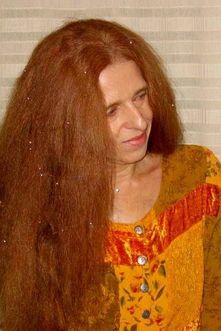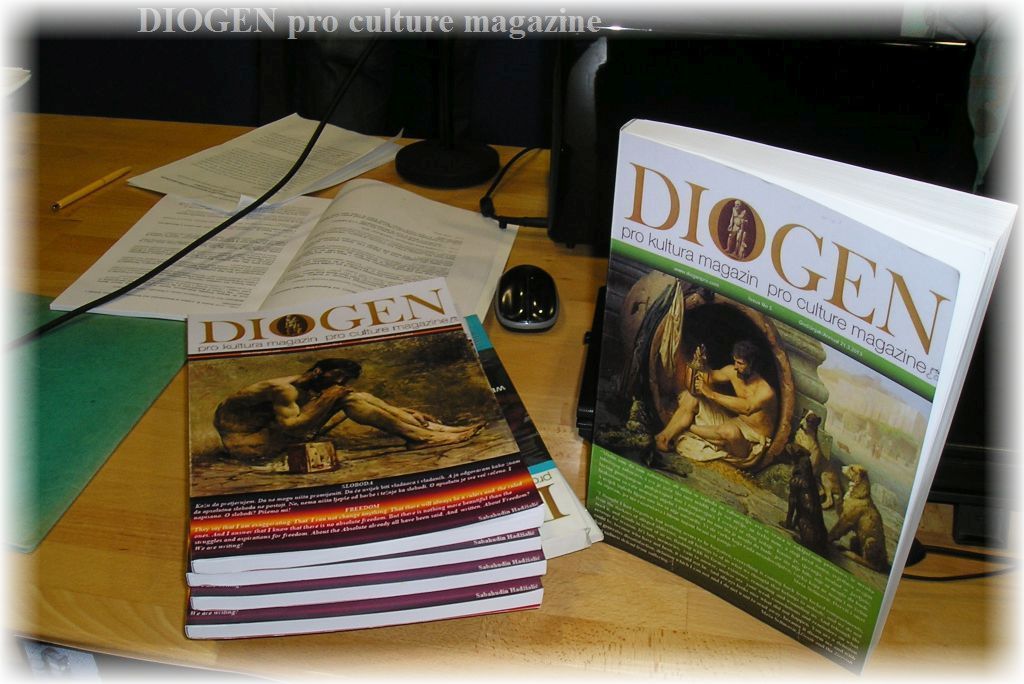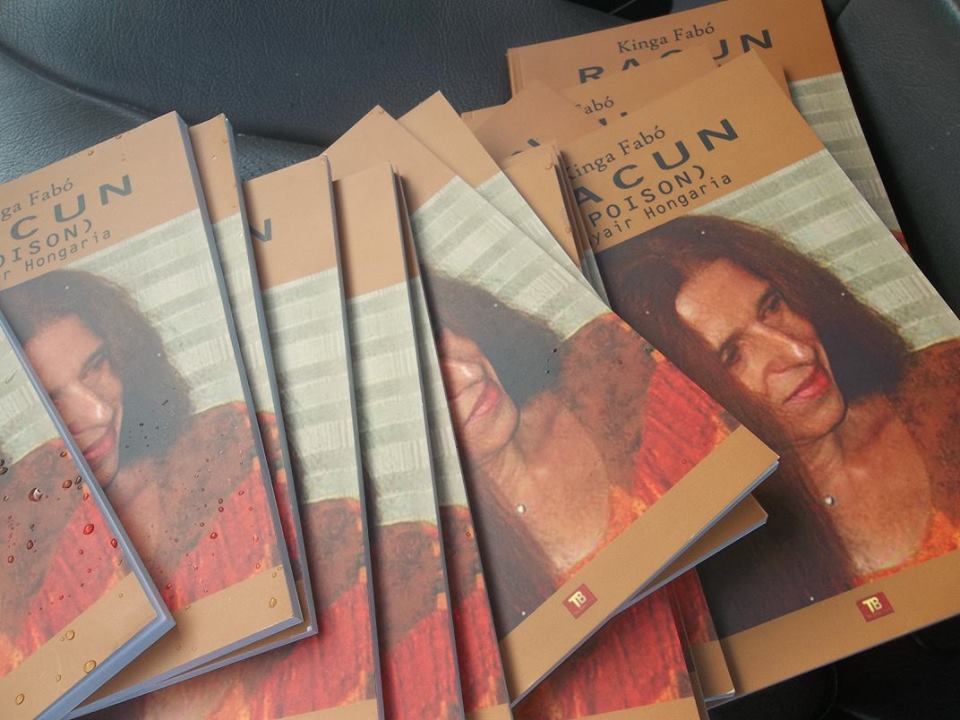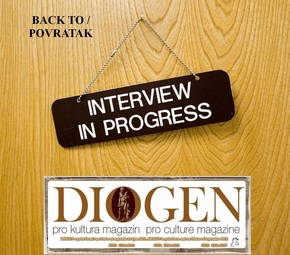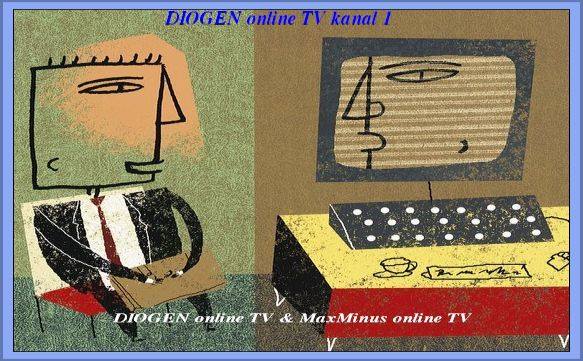|
All Rights Reserved
Publishers and owners: Assoc. Prof. Dr Sabahudin Hadžialić and Peter Tase Whitefish Bay, WI, United States of America MI OBJEDINJUJEMO RAZLIČITOSTI... WE ARE UNIFYING DIVERSITIES |
Interview
Kinga Fabó
When did you start to write and what inspires you?
However I’ve always been a poet, I didn’t realize or identify it as a special state of mind, or a special creative and mental energy, activity. Neither did others. For me it was so natural that I thought everybody was a poet. My mind was full of rhymes, rhytms, music -- poems of course. I was constantly daydreaming, finding things out. My fancy and imagination was always at work…I had such an intense inner life, with so many intense inner experiences, that I didn’t need outside one(s) at all. I remember writing a complete play with long dialogues in my head as a small child. Nobody knew anything about my secret life. It was only much later that I realized, this was not a usual way of life. And it was even much later that I began to put down in writing a part of all that happening in my head…
As for inspiration, it’s up to me. If I’m inspired anything might be a source of inspiration. If not – nothing.
When did you publish your first book and how did the success follow later?
These were lengthy inner and outside processes. First I myself had to decide whether I wanted to publish my texts…Later came those long and tiring interactions with editors, publishers…As I used to be a linguist, my first publications were linguistic studies…Deciding to publish my poetry had (has) a long run…
Poems Have Been Translated Into National And International Languages?
Yes, my poems have been translated into several languages. Some of my individual poems have been translated into 17 languages altogether: Albanian, Arabic, Bulgarian, English, Esperanto, French, Galego, German, Greek, Indonesian, Italian, Persian, Romanian, Serbian, Slovenian, Spanish, Tamil.
One of my poems (The Ears) has among others 6 different Indonesian translations by 6 different authors. You might read all the 6 translations on lyrikline.org, where there are 10 poems of mine in several translations…
https://www.lyrikline.org/en/poems/fuel-12115#.WVZRA4jyjIV
I also have a bilingual Indonesian-English poetry book Racun/Poison.
http://mek.oszk.hu/13900/13973/13973.pdf
Poetry was published in various international literary magazines and journals of poetry?
My poetry has been published in various international literary journals and poetry magazines including Osiris, Ink Sweat & Tears, The Screech Owl, The Original Van Gogh’s Ear, Numéro Cinq, Deep Water Literary Journal, Fixpoetry, lyrikline.org and elsewhere as well as in anthologies like The Significant Anthology, Women in War, The Colours of Refuge, Poetry Against Racism, World Poetry Yearbook 2015, and others.
Now I’m incredibly privileged to have 2 poems „The Promiscuous Mirror” and „The Complaint of a Worn-out Girdle” translated by George Szirtes published in the current issue of Modern Poetry in Translation in the company of the world’s leading poets.
You are doing theoretical issues and essayist interested in topics from the periphery, an essay about Sylvia Plath?
Earlier in my career I used to be a linguist and also an essayist. As a linguist I was dealing with theoretical issues like the philosophy of language, logics, semantics, speech-acts etc. Generally speaking I’m interested in topics from the periphery, from the verge, in suspension. I’m a real trespasser, a transgressor, always between the verges, on the verge, in the extreme.
I’ve written an essay on Sylvia Plath. My specific concern in this respect was her personality…As you might see, even though I don’t care for my own personality, I’m intrigued by that of others…I know her life better than my own one.
The story you translated by Paul Olchvary ahead comes Nomer Zinc July?
As for fiction I’ve a story „Two Sound Fetishists”, translated into English by Paul Olchvary. It is forthcoming in the July issue of Numéro Cinq.
You are the editor of Poetry in the airy, new US E-journal for literary and visual arts?
I’m Poetry Editor at Diaphanous, a new American journal for literary and visual arts.
Do you know what „diaphanous” mean? – I learned it from a line of „A Birthday Present”, a poem by Plath, „The diaphanous satins of a January window…” Fine, isn’t it?
Is there anything that connects poetry and painting? How do you see them together?
Poetry and painting can be connected in several ways except one; it’s quite an unhappy chance if either of them is an illustration of the other…
The true purpose of art is to uplift humankind, inspire reverence and morality, and instill in people's hearts a true sense of beauty?
I wouldn’t like to believe that poetry or art has one and only one exclusive, obligate true purpose, general purposes or any special role or purpose at all, especially a moral one. Of course there are artists, authors who attribute roles, purposes to their own arts…So many men so many minds. There is no account for tastes. – As for me, I believe, there are no general, universal, normative aims, roles, maxims, propositions. There is not one and only one exclusive truth and/or beauty that all of us must accept, attain…In principle the number of truths, beauties, poetries are infinite. Of course my opinion, my choice is also only one of the infinite possibilities…I don’t like authoritarian thinking. I prefer pluralism.
In the course of history a special role had/has been assigned to art and especially poetry by philosophers, poets. Let’s think of Keats „Beauty is truth, truth beauty, …”, Rilke „You must change your life” or Hölderlin. A line by Hölderlin „Poetically Man Dwells” gave the title of the famous essay by Heidegger referred to so often.
What can you tell us about your work, prizes, journeys and friendships?
I work a lot, even though only a small part of it seems. Just like in my childhood I enjoy writing, thinking, reading, talking…I like to disappear, I like to be alone…The process of writing is more interesting for me than the usual tugs-of-war…Of course it doesn’t mean that publications, successes are not important. Indeed, they are, but…But not at all costs…As both of us are Eastern-European poets we might have experienced that prizes are generally rewards for loyalty to the governing party, to a poetic group or school, to a master and so on, or other non-professional merits are returned by them. „Something’ s Got to Give” tells the title of the last, unfinished movie of Marilyn Monroe. This is possible, this might happen just because of the nature of the thing itself; creative products are incommensurable…I like this, you like that…As for journeys, I would have liked to take several trips, but alas! -- we were living either under direct political dictatorship or under the dictatorship of money or under both…True friendships are very rare among us pursuing this profession. Writing poetry is a lonely job. Selling poetry is another matter where you must join the club. Belong is a must. I don’t belong.
Is there anything that you could pinpoint and tell us about yourself between dreams and reality?
I’m happy you mentioned „pinpoint”, because it is a crucial word for me. Being sharp, keen, cutting, penetrating, hard, edgy, brutal, bestial etc. in my poems…As Plath wrote „And the knife not carve but enter…” (A Birthday Present). As for manoeuvring between dreams and reality, I hope you don’t mind if I answer with some lines taken from a poem by A. R. Ammons (Success Story, 1976); I never got on good / relations with the world // first I had nothing / the world wanted // then the world had / nothing I wanted.
It was a great pleasure talking to you and you are always welcome to our house "Diogen pro culture"magazine for art, culture, education and science.
Thanks for the opportunity.
Kinga Fabó
When did you start to write and what inspires you?
However I’ve always been a poet, I didn’t realize or identify it as a special state of mind, or a special creative and mental energy, activity. Neither did others. For me it was so natural that I thought everybody was a poet. My mind was full of rhymes, rhytms, music -- poems of course. I was constantly daydreaming, finding things out. My fancy and imagination was always at work…I had such an intense inner life, with so many intense inner experiences, that I didn’t need outside one(s) at all. I remember writing a complete play with long dialogues in my head as a small child. Nobody knew anything about my secret life. It was only much later that I realized, this was not a usual way of life. And it was even much later that I began to put down in writing a part of all that happening in my head…
As for inspiration, it’s up to me. If I’m inspired anything might be a source of inspiration. If not – nothing.
When did you publish your first book and how did the success follow later?
These were lengthy inner and outside processes. First I myself had to decide whether I wanted to publish my texts…Later came those long and tiring interactions with editors, publishers…As I used to be a linguist, my first publications were linguistic studies…Deciding to publish my poetry had (has) a long run…
Poems Have Been Translated Into National And International Languages?
Yes, my poems have been translated into several languages. Some of my individual poems have been translated into 17 languages altogether: Albanian, Arabic, Bulgarian, English, Esperanto, French, Galego, German, Greek, Indonesian, Italian, Persian, Romanian, Serbian, Slovenian, Spanish, Tamil.
One of my poems (The Ears) has among others 6 different Indonesian translations by 6 different authors. You might read all the 6 translations on lyrikline.org, where there are 10 poems of mine in several translations…
https://www.lyrikline.org/en/poems/fuel-12115#.WVZRA4jyjIV
I also have a bilingual Indonesian-English poetry book Racun/Poison.
http://mek.oszk.hu/13900/13973/13973.pdf
Poetry was published in various international literary magazines and journals of poetry?
My poetry has been published in various international literary journals and poetry magazines including Osiris, Ink Sweat & Tears, The Screech Owl, The Original Van Gogh’s Ear, Numéro Cinq, Deep Water Literary Journal, Fixpoetry, lyrikline.org and elsewhere as well as in anthologies like The Significant Anthology, Women in War, The Colours of Refuge, Poetry Against Racism, World Poetry Yearbook 2015, and others.
Now I’m incredibly privileged to have 2 poems „The Promiscuous Mirror” and „The Complaint of a Worn-out Girdle” translated by George Szirtes published in the current issue of Modern Poetry in Translation in the company of the world’s leading poets.
You are doing theoretical issues and essayist interested in topics from the periphery, an essay about Sylvia Plath?
Earlier in my career I used to be a linguist and also an essayist. As a linguist I was dealing with theoretical issues like the philosophy of language, logics, semantics, speech-acts etc. Generally speaking I’m interested in topics from the periphery, from the verge, in suspension. I’m a real trespasser, a transgressor, always between the verges, on the verge, in the extreme.
I’ve written an essay on Sylvia Plath. My specific concern in this respect was her personality…As you might see, even though I don’t care for my own personality, I’m intrigued by that of others…I know her life better than my own one.
The story you translated by Paul Olchvary ahead comes Nomer Zinc July?
As for fiction I’ve a story „Two Sound Fetishists”, translated into English by Paul Olchvary. It is forthcoming in the July issue of Numéro Cinq.
You are the editor of Poetry in the airy, new US E-journal for literary and visual arts?
I’m Poetry Editor at Diaphanous, a new American journal for literary and visual arts.
Do you know what „diaphanous” mean? – I learned it from a line of „A Birthday Present”, a poem by Plath, „The diaphanous satins of a January window…” Fine, isn’t it?
Is there anything that connects poetry and painting? How do you see them together?
Poetry and painting can be connected in several ways except one; it’s quite an unhappy chance if either of them is an illustration of the other…
The true purpose of art is to uplift humankind, inspire reverence and morality, and instill in people's hearts a true sense of beauty?
I wouldn’t like to believe that poetry or art has one and only one exclusive, obligate true purpose, general purposes or any special role or purpose at all, especially a moral one. Of course there are artists, authors who attribute roles, purposes to their own arts…So many men so many minds. There is no account for tastes. – As for me, I believe, there are no general, universal, normative aims, roles, maxims, propositions. There is not one and only one exclusive truth and/or beauty that all of us must accept, attain…In principle the number of truths, beauties, poetries are infinite. Of course my opinion, my choice is also only one of the infinite possibilities…I don’t like authoritarian thinking. I prefer pluralism.
In the course of history a special role had/has been assigned to art and especially poetry by philosophers, poets. Let’s think of Keats „Beauty is truth, truth beauty, …”, Rilke „You must change your life” or Hölderlin. A line by Hölderlin „Poetically Man Dwells” gave the title of the famous essay by Heidegger referred to so often.
What can you tell us about your work, prizes, journeys and friendships?
I work a lot, even though only a small part of it seems. Just like in my childhood I enjoy writing, thinking, reading, talking…I like to disappear, I like to be alone…The process of writing is more interesting for me than the usual tugs-of-war…Of course it doesn’t mean that publications, successes are not important. Indeed, they are, but…But not at all costs…As both of us are Eastern-European poets we might have experienced that prizes are generally rewards for loyalty to the governing party, to a poetic group or school, to a master and so on, or other non-professional merits are returned by them. „Something’ s Got to Give” tells the title of the last, unfinished movie of Marilyn Monroe. This is possible, this might happen just because of the nature of the thing itself; creative products are incommensurable…I like this, you like that…As for journeys, I would have liked to take several trips, but alas! -- we were living either under direct political dictatorship or under the dictatorship of money or under both…True friendships are very rare among us pursuing this profession. Writing poetry is a lonely job. Selling poetry is another matter where you must join the club. Belong is a must. I don’t belong.
Is there anything that you could pinpoint and tell us about yourself between dreams and reality?
I’m happy you mentioned „pinpoint”, because it is a crucial word for me. Being sharp, keen, cutting, penetrating, hard, edgy, brutal, bestial etc. in my poems…As Plath wrote „And the knife not carve but enter…” (A Birthday Present). As for manoeuvring between dreams and reality, I hope you don’t mind if I answer with some lines taken from a poem by A. R. Ammons (Success Story, 1976); I never got on good / relations with the world // first I had nothing / the world wanted // then the world had / nothing I wanted.
It was a great pleasure talking to you and you are always welcome to our house "Diogen pro culture"magazine for art, culture, education and science.
Thanks for the opportunity.
|
| ||||||||||||
Short Bio...
Kinga Fabó is a Hungarian poet (linguist, essayist) , author of eight books, the latest of which is a bilingual Indonesian-English poetry collection RACUN/POISON published in 2015 in Jakarta, Indonesia and was positively reviewed by Linda Ibbotson.
Fabó’s poetry has been published in various international literary magazines including Osiris, Ink Sweat & Tears, The Screech Owl, The Original Van Gogh’s Ear, Numéro Cinq, Fixpoetry, Lyrikline.org and elsewhere as well as in anthologies like The Significant Anthology, Resonance, Women in War, The Colours of Refuge, Poetry Against Racism, and World Poetry Yearbook 2015 and others.
Some of her poems have been repeatedly anthologized, while others have been picked up at random from here and there and happened to be translated into just Persian, Albanian, Tamil, or Galego. One of her poems, " The Ears, " has among others six different Indonesian translations by six different authors.
Two of her poems, translated by George Szirtes, are forthcoming in Modern Poetry in Translation, Spring Issue, introduced by Szirtes.
She has also written an essay on Sylvia Plath. In everything she’s done, Fabó has always been between the verges, on the verge, and in the extreme.
Kinga Fabó is a Hungarian poet (linguist, essayist) , author of eight books, the latest of which is a bilingual Indonesian-English poetry collection RACUN/POISON published in 2015 in Jakarta, Indonesia and was positively reviewed by Linda Ibbotson.
Fabó’s poetry has been published in various international literary magazines including Osiris, Ink Sweat & Tears, The Screech Owl, The Original Van Gogh’s Ear, Numéro Cinq, Fixpoetry, Lyrikline.org and elsewhere as well as in anthologies like The Significant Anthology, Resonance, Women in War, The Colours of Refuge, Poetry Against Racism, and World Poetry Yearbook 2015 and others.
Some of her poems have been repeatedly anthologized, while others have been picked up at random from here and there and happened to be translated into just Persian, Albanian, Tamil, or Galego. One of her poems, " The Ears, " has among others six different Indonesian translations by six different authors.
Two of her poems, translated by George Szirtes, are forthcoming in Modern Poetry in Translation, Spring Issue, introduced by Szirtes.
She has also written an essay on Sylvia Plath. In everything she’s done, Fabó has always been between the verges, on the verge, and in the extreme.
Poetry - Kinga Fabó
|
| ||||||||||||
.
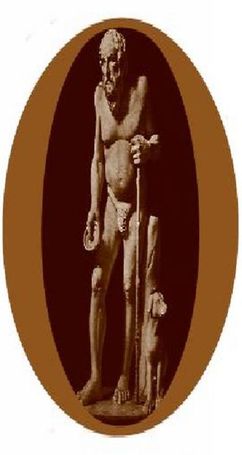
Copyright © 2017 Peter Tase & Sabahudin Hadžialić
Design: Sabi / Autors & Sabahudin Hadžialić. Design LOGO - Stevo Basara.
Freelance gl. i odg. urednik od / Freelance Editor in chief as of 2009: Sabahudin Hadžialić
All Rights Reserved. Publishers and owners: Peter Tase & Sabahudin Hadžialić
Whitefish Bay, WI, United States of America
Diogen pro kultura magazin (Online)
ISSN 2296-0929
Diogen pro kultura magazin (Print)
ISSN 2296-0937
Library of Congress USA / Biblioteka - Knjižnica Kongresa SAD
Contact Editorial board E-mail: [email protected];
Narudžbe/Order: http://www.diogenpro.com/diogen-all-in-one.html
Pošta/Mail USA: Peter Tase, 5023 NORTH BERKELEY BLVD. WHITEFISH BAY, WI, 53217, USA
Pošta/Mail BiH: Sabahudin Hadžialić, Grbavička 32, 71000 Sarajevo i/ili Dr. Wagner 18/II, 70230 Bugojno, Bosna i Hercegovina
Design: Sabi / Autors & Sabahudin Hadžialić. Design LOGO - Stevo Basara.
Freelance gl. i odg. urednik od / Freelance Editor in chief as of 2009: Sabahudin Hadžialić
All Rights Reserved. Publishers and owners: Peter Tase & Sabahudin Hadžialić
Whitefish Bay, WI, United States of America
Diogen pro kultura magazin (Online)
ISSN 2296-0929
Diogen pro kultura magazin (Print)
ISSN 2296-0937
Library of Congress USA / Biblioteka - Knjižnica Kongresa SAD
Contact Editorial board E-mail: [email protected];
Narudžbe/Order: http://www.diogenpro.com/diogen-all-in-one.html
Pošta/Mail USA: Peter Tase, 5023 NORTH BERKELEY BLVD. WHITEFISH BAY, WI, 53217, USA
Pošta/Mail BiH: Sabahudin Hadžialić, Grbavička 32, 71000 Sarajevo i/ili Dr. Wagner 18/II, 70230 Bugojno, Bosna i Hercegovina


